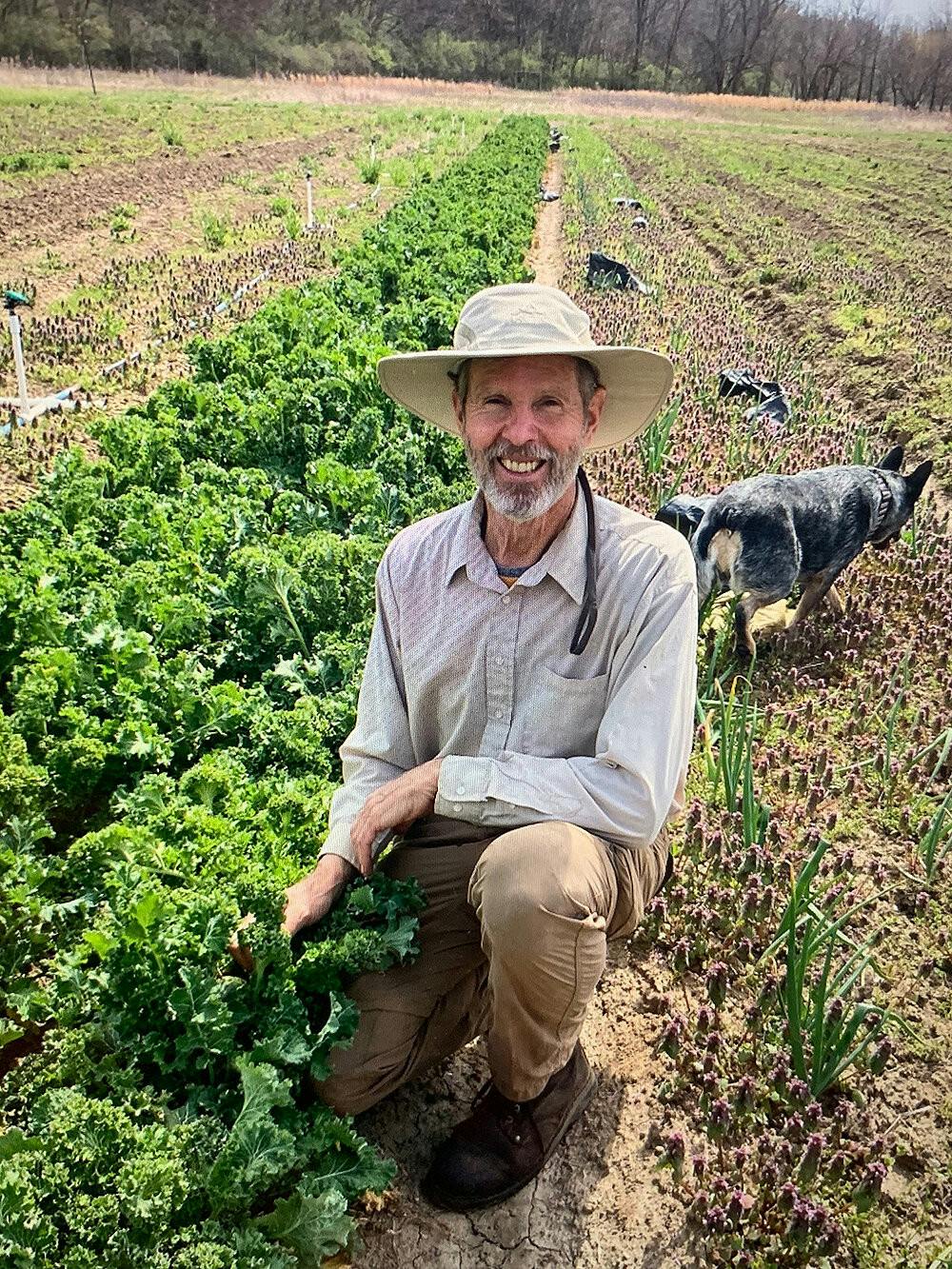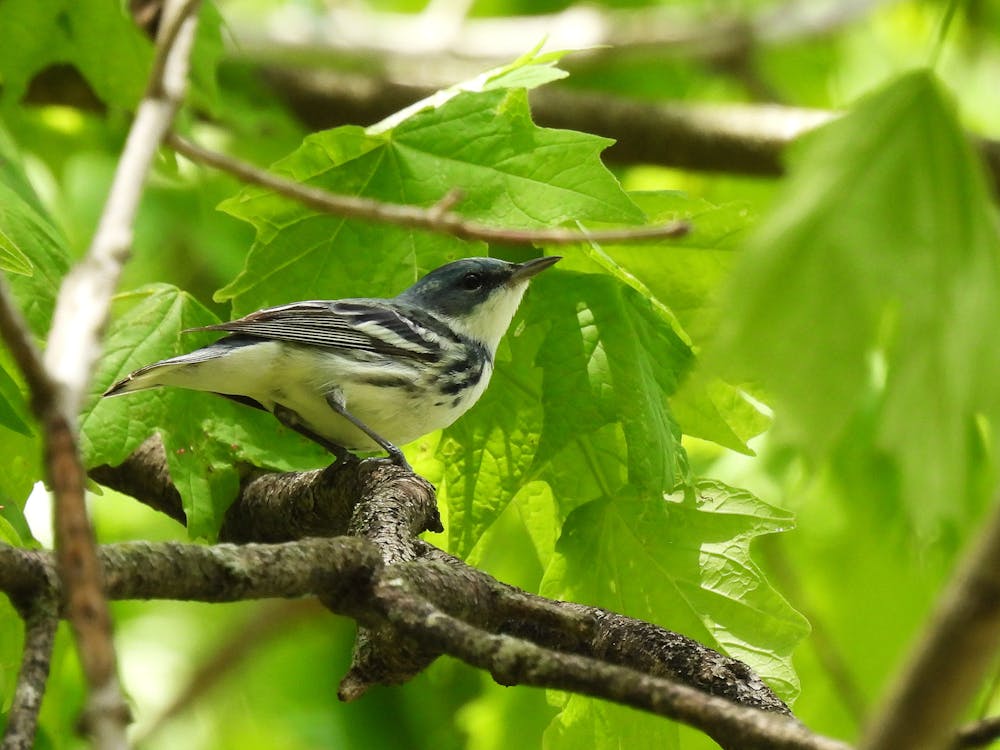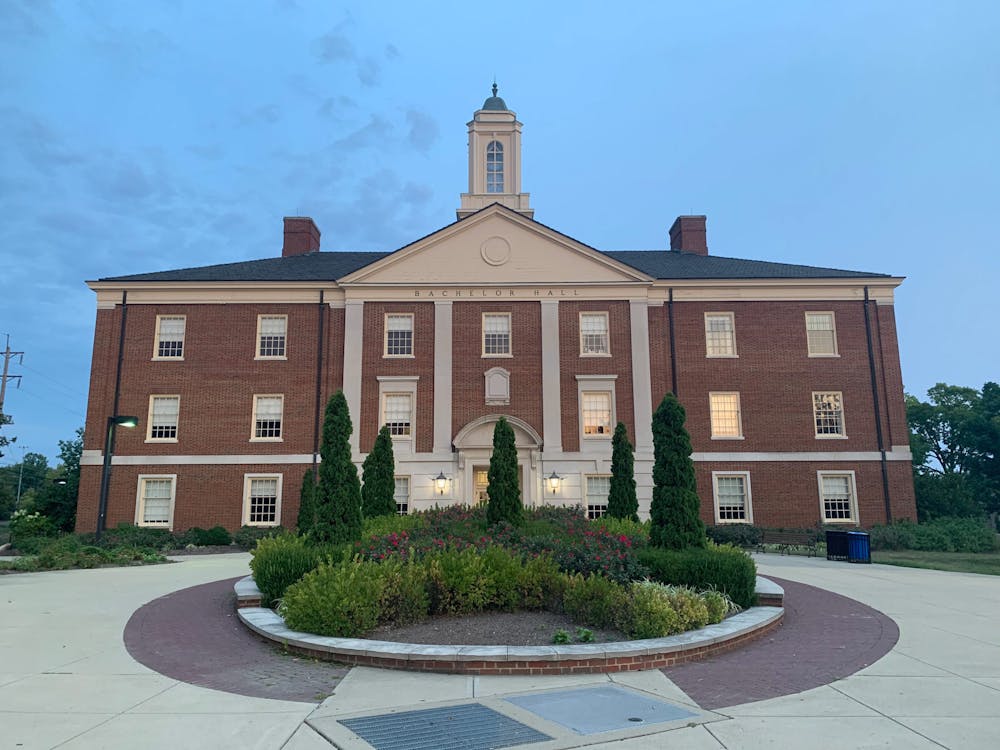Since 2016, Miami University’s 14-acre farm north of Yager Stadium has given students a hands-on agricultural learning experience. For Charles Griffin, the director of farm production and operations, the project has been his career for seven years.
Now, in the face of Miami’s $36 million budget deficit, Griffin has lost his contract, and the future of the farm is uncertain.
“At Miami, my goal is, or was, to develop community-supported agriculture that includes both the Miami and Oxford communities,” Griffin said. “It was meant to be an educational opportunity and program to develop a better understanding of the role food plays in a community and an individual’s life.”
Funded by a $200,000 start-up grant from the Miami University Provost Innovation & Interdisciplinary Fund, the farm was able to get off the ground running as an interdisciplinary innovation project under Miami’s Institute for Food. Despite its distance from campus, the farm has been home to numerous class projects, intern and volunteer opportunities, and a community-supported agriculture program.
Griffin said that students come to the farm and are automatically immersed into an environment most have not experienced before. They’re not only planting for most likely their first time but they are also developing a newfound connection with the Earth.

Rows of crops color the landscape across the fields of Miami’s farm. Photo provided by Audrey Allen.
Despite his contract being nulled, Griffin recognized that the university’s current budget deficit has pressed it into tight corners. David Creamer, senior vice president for finance and business services, wrote in an email to The Miami Student that he was not directly involved in the decision.
Alecia Lipton, associate director of media relations, confirmed in an email to The Student that the decision was financial. The farm was initially funded by internal and external grants before being subsidized by the College of Arts and Science.
“The intention was always that the farm become self-sustaining, covering both its operational and personnel costs,” Lipton wrote. “Unfortunately, it has not been able to do that, so the difficult decision was made to discontinue the Community Supported Agriculture program.”
Lipton added that the Institute for Food is evaluating options to continue the educational mission of the farm.
“I understand the university’s situation, and I think we have to rely on outside funding until we can figure out how to give the farm’s activities financial viability and budgetary value,” Griffin said.
Alongside his understanding of the university’s budget situation, Griffin has maintained optimism surrounding this period of financial unrest.
Enjoy what you're reading?
Signup for our newsletter
“We’ve already had to cancel the Community Supported Agriculture program for this coming year but it’s not necessarily a bad thing to have a restart since it allows for a reconsideration of the farm’s activities to make them better and more efficient,” Griffin said.
Amanda Bentley Brymer, the assistant director of the Institute for the Environment and Sustainability, shares Griffin’s optimism for this period of change.
“I have some hopes that we could still lock in on the curriculum connected to the farm and really build up its interdisciplinary focus so that in a few years, the university would fold in the farm in a way that is sustainable,” said Bentley Brymer.
Nancy Parkinson, a registered dietitian nutritionist and nutrition professor, is also positive about the future of the farm and voiced her hopes of increasing student and community involvement.
“I just think there are some untapped resources that we could utilize such as getting the farm connected to local restaurants, initiating a campus food truck, bringing in alumni who are in food businesses to mentor our students, and starting semester-long workshops on the farm,” said Parkinson.
Despite its challenges, students regularly get involved at the farm. Audrey Allen, a junior majoring in environmental earth science and sustainability, worked with the farm as part of her sustainability capstone course IES 474.
“It was definitely a positive experience. I think more students should get involved with the farm. It’s a hands-on experience that most students don’t experience,” Allen said.
Undeterred by a shift in leadership since Charles Griffin’s lost contract, Bently Brymer and the Institute for the Environment and Sustainability have called for a get-together of all faculty connected to the farm to discuss future steps.
“I am delighted that the consensus seems to be that there is still opportunity for the farm to grow and to be seen as valuable to Miami in the long run,” Bentley Brymer said. “I’m still not ready to give up this fight.”




